Episodes
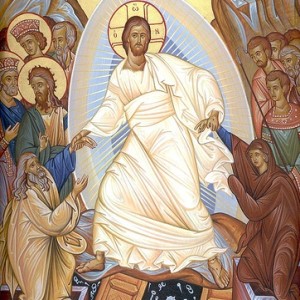
Tuesday Apr 23, 2019
St. Thomas Aquinas on the Resurrection of Jesus with Dr. Jeremy Holmes
Tuesday Apr 23, 2019
Tuesday Apr 23, 2019
The Catechism of the Catholic Church declares, “Easter is not simply one feast among others, but the ‘"Feast of feasts,’ the ‘Solemnity of solemnities,’ just as the Eucharist is the ‘Sacrament of sacraments’ (the Great Sacrament). St. Athanasius calls Easter ‘the Great Sunday’ and the Eastern Churches call Holy Week ‘the Great Week.’ The mystery of the Resurrection, in which Christ crushed death, permeates with its powerful energy our old time, until all is subjected to him.”
In his Compendium Theologiae, St. Thomas Aquinas reflected on the meaning of the resurrection. This Easter Week, Dr. Jeremy Holmes explains how Thomas understood the resurrection of Christ and its relationship to our resurrection.
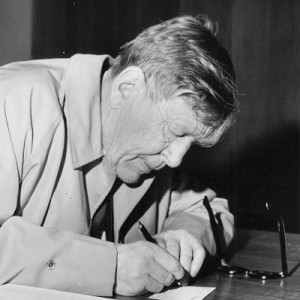
Tuesday Apr 16, 2019
The Grand Sweep of Western Civilization with Dr. Wilfred McClay
Tuesday Apr 16, 2019
Tuesday Apr 16, 2019
The one-semester undergraduate course's reading list included Augustine's Confessions, The Brothers Karamazov, Moby Dick, four Shakespeare plays, nine operas, and even more requiring about 6,000 pages of reading.
It was a course designed and taught by poet W. H. Auden at the University of Michigan in 1941. While the course is no longer one semester and the syllabus has undergone some revisions, the spirit of Auden lives on at the University of Oklahoma.
One of the professors behind the course is Dr. Wilfred McClay, the university's G. T. and Libby Blankenship Chair in the History of Liberty. Dr. McClay came to Wyoming Catholic College this past weekend to deliver a lecture and is our guest on this edition of The After Dinner Scholar.
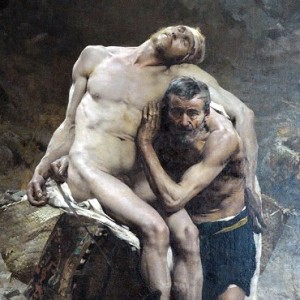
Tuesday Apr 09, 2019
"In an Urban Wilderness with Christ in the City" with Dr. Kent Lasnoski
Tuesday Apr 09, 2019
Tuesday Apr 09, 2019
March 23 to 30 was Outdoor Week here at Wyoming Catholic College. And while most of our students were out in what we typically think of as the wilderness, one group found themselves in another kind of wilderness: a wilderness of loneliness.
Christ in the City was founded in Denver to address long-term, chronic homelessness. Young missionaries commit one year to live in community, grow in the Faith, and minister to the needy, bridging the regrettable gap that often separates evangelism from service to the poor.
In addition, Christ in the City provides short-term opportunities during the summer and, for our Wyoming Catholic College students, during Outdoor Week.
Theologian Dr. Kent Lasnoski and his family were part of the team. Dr. Lasnoski is our guest this week on The After Dinner Scholar
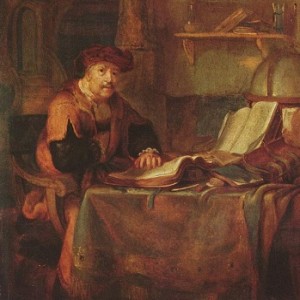
Tuesday Apr 02, 2019
Tuesday Apr 02, 2019
Two or three times each academic year two Wyoming Catholic College vans make the five-hour drive to Denver International Airport to pick up two dozen high school seniors to compete for one of our Founders’ Scholarships.
The Founders’ Scholarship is a full tuition scholarship awarded to a student who shows academic excellence, great work ethic and strong communication skills. The College holds two-three weekend-long competitions each academic year. Students tackle assigned readings ahead of time to discuss in seminars, prepare and deliver speeches, and interact with faculty, current students, and one another. In addition to being a competition, the Founders’ Weekend is a great taste of life at Wyoming Catholic College. Win, lose, or draw, most of the students leave having found a college they can love.
Dr. Jason Baxter, our academic dean, is a veteran of Founders’ competitions and is our guest on The After Dinner Scholar.
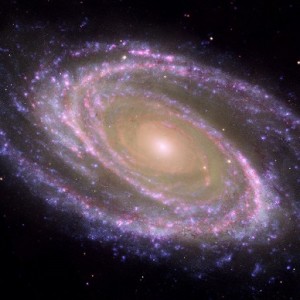
Tuesday Mar 26, 2019
How High the Moon, How Far the Stars? with Dr. Scott Olsson
Tuesday Mar 26, 2019
Tuesday Mar 26, 2019
A recent news article announced the discovery of 300,000 new galaxies bringing the number to somewhere around 100 billion some 12 to 18 billion light years away. Such numbers boggle the mind as does the notion that we can actually calculate such distances. Yet starting back in about 240 BC in Alexandria, Egypt Eratosthenes managed to calculate with amazing accuracy the circumference of the earth. Once that was done, it was only a matter of time before people calculated the distance to the Moon, to the Sun, and finally to the stars.
How did they do it? Dr. Scott Olsson has been discussing these matters with our Wyoming Catholic College sophomores. Dr. Olsson is our guest on this edition of The After Dinner Scholar.
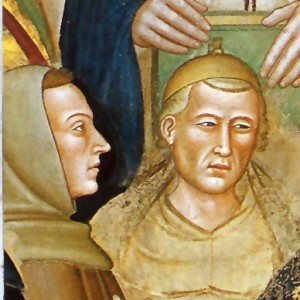
Tuesday Mar 19, 2019
Tuesday Mar 19, 2019
There are dozens of would-be explanations for the polarization we as a culture and body politic experience today. One plausible explanation we rarely hear about is nominalism as over against realism.
Do the words we use—“cat,” “canyon,” “mountain,” and most important “man”—describe universals or merely particulars? Can we meaningfully talk about human nature and what it means to be one of us? Is human nature something real that is outside of our thoughts or is it merely an internal, subjective construct we apply to many particulars that seem somewhat alike?
While these seem like rather abstract and academic question, Wyoming Catholic College senior Jack Thrippleton argued in his senior thesis and oration, “Realism and Nominalism cannot truly argue against each other, for they do not share enough premises.”
Jack is our guest this week on The After Dinner Scholar.

Tuesday Mar 12, 2019
Christian Fiction and the Rules of Subcreation with Mary Woods, Class of 2019
Tuesday Mar 12, 2019
Tuesday Mar 12, 2019
In the fall semester, Wyoming Catholic College seniors write theses and then in the spring semester all classes are canceled for three days as they present their research in the form of a public orations—thirty minutes of lecture followed by thirty minutes of question from a faculty panel and from their peers in the audience.
This and the next edition of The After Dinner Scholar will feature interviews with senior about their theses and orations.
Mary Woods is an aspiring novelist who entitled her thesis and oration “Law, the Soil of Story: Christian Fiction and the Rules of Subcreation.” Mary is our guest this week on The After Dinner Scholar.
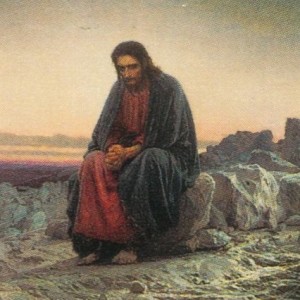
Tuesday Mar 05, 2019
Lent: A Time of Sacrifice, Growth, and Joy with Fr. Paul Ward
Tuesday Mar 05, 2019
Tuesday Mar 05, 2019
“Lent,” wrote New Testament scholar Dr. N. T. Wright, “is a time for discipline, for confession, for honesty, not because God is mean or fault-finding or finger-pointing but because he wants us to know the joy of being cleaned out, ready for all the good things he now has in store.”
And even if we already knew that, well… discipline and sacrifice come hard to most of us. As Pope St. John Paul II noted, “Our age, regrettably, is particularly susceptible to the temptation toward selfishness which always lurks within the human heart. …The spirit of the world affects our inner propensity to give ourselves unselfishly to others and drives us to satisfy our own particular interests.”
Lent is the needed antidote and our Wyoming Catholic College community takes Lent very seriously. Guiding us—students, faculty, and staff—through Lent is our college chaplain, Fr. Paul Ward. Fr. Ward is our guest this week on The After Dinner Scholar.
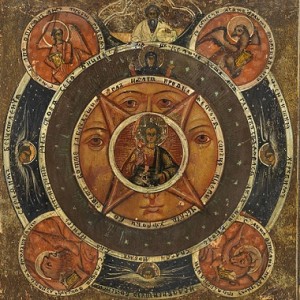
Tuesday Feb 26, 2019
The Being, the Goodness, and the Providence of God with Dr. Michael Bolin
Tuesday Feb 26, 2019
Tuesday Feb 26, 2019
“Are not two sparrows sold for a penny?” told Jesus the fearful, “And not one of them will fall to the ground without your Father’s will. But even the hairs of your head are all numbered.” (Matthew 10:29-30)
God governs the vast reaches of space, the hosts of angels, the rise and fall of nations. And yet, little birds don’t fall to the ground dead “without your Father’s will.” And as your hair falls out, God keeps track of how many hairs remain.
This is a great mystery. It is the doctrine of God’s providence. “All things,” wrote St. Thomas Aquinas in his Compendium Theologiae, “are ruled by divine providence. “All things”? That’s quite an extravagant claim and, in our world of woe, it’s also quite a controversial claim.
Theologian, Dr. Michael Bolin provides some insights on this mystery on this edition of The After Dinner Scholar.
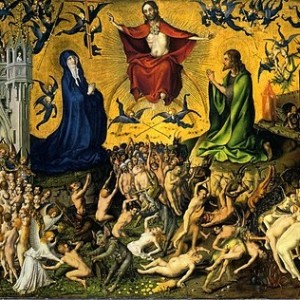
Tuesday Feb 19, 2019
Learning and the Dies Irae with Prof. Kyle Washut
Tuesday Feb 19, 2019
Tuesday Feb 19, 2019
The Dies Irae, a hymn from the 12th century, speaks about the second coming of Christ and the Judgment Day. In addition to that, the Latin text just happens correspond with the Latin Wyoming Catholic College sophomores are learning right now.
It is, in fact, a powerful and challenging combination of poetry, theology, spirituality, and Latin grammar.
Noticing all that, Prof. Kyle Washut and Prof. Eugene Hamilton integrated a bit of second year Latin with second year Trivium. Prof. Washut is our guest this week on The After Dinner Scholar

